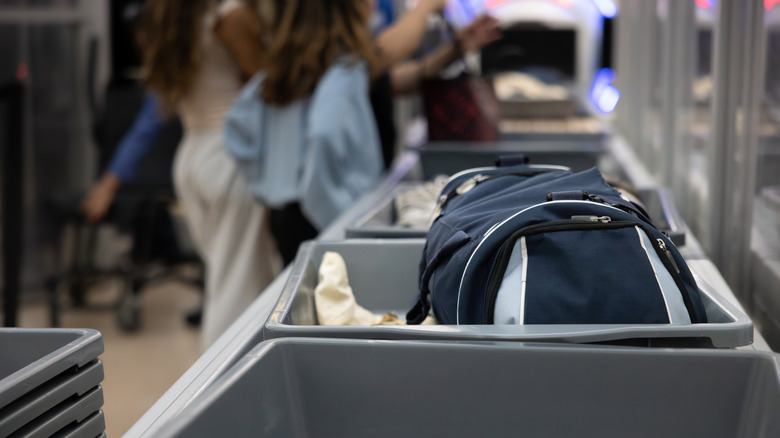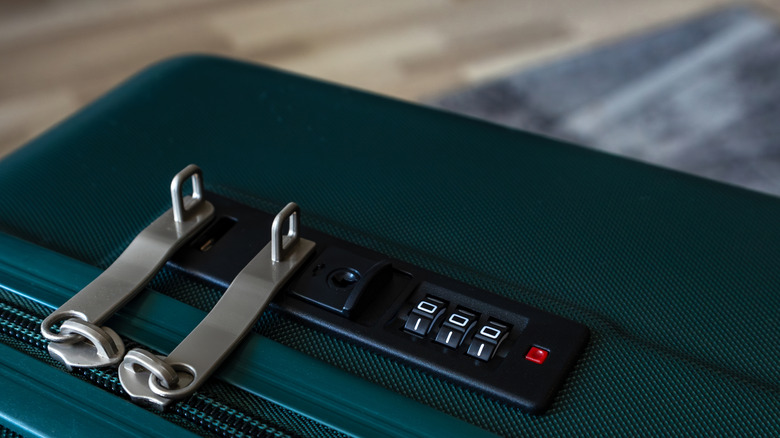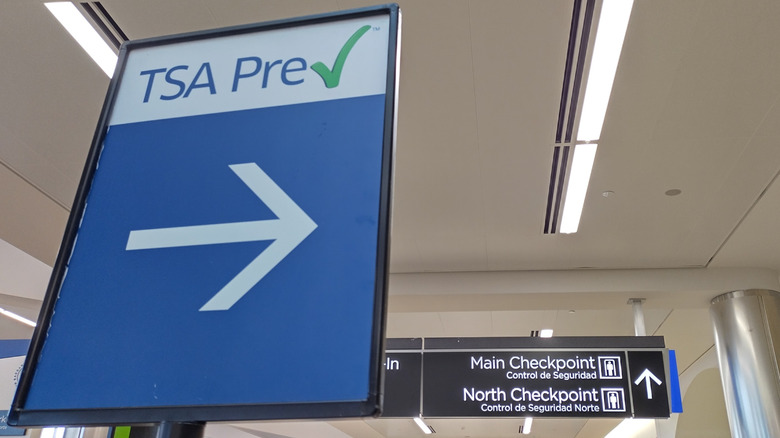How To Avoid Theft In The Airport TSA Security Line
Have you ever felt that little jolt of panic watching your bags disappear into the X-Ray machine while you're still stuck taking off your shoes? Airports can be chaotic, and the TSA security line is a pickpocket's playground. Your valuables vanish down a conveyor belt while you're in the body scanner, and in that tiny window, opportunists — either the passenger behind you or even a TSA agent – can strike. If you don't take extra precautions, you might not even notice something's missing until you're cruising at 35,000 feet. However, you can keep your stuff safe while still making it through security without turning into a paranoid wreck with a few hacks.
First, pack smart. Those little packing cubes everyone talks about on social media aren't just useful for keeping your t-shirts folded. Use them to group small electronics — chargers, headphones, e-readers — and important personal items like your passport, wallet, and ID, then slide that cube into a secure section of your carry-on. This way, when you're juggling bins and belts, your essentials aren't floating around where anyone can grab them.
If you don't have a travel cube, you can put small valuables in a gallon-sized ziploc bag, or in your jacket pocket as a last resort, which will have to go in the bin as well. Also, lock your bags. Even if you're only carrying a backpack or roller, a simple TSA-approved lock makes a huge difference. It's a visual deterrent that tells would-be thieves to move along.
Keep your eyes on your belongings from start to finish
Thieves can swoop in before you're past the metal detector, so avoid putting valuables in the first bin through the scanner. Instead, send shoes or jackets with empty pockets first so your valuables are last to come out. And, once your items are on the belt, stay focused: Don't check your phone notifications until you've grabbed everything and made sure nothing is missing. Snapping a quick photo of the items you're dropping in the bin will be a huge help. If something goes missing, you have proof of what you had and what it looked like. Plus, if you're traveling with someone else — your partner, a friend, even a colleague — split up in the line and space yourselves out. That way, the person behind can keep an eye on your belongings as they go through the scanner.
If you're a frequent flyer, TSA PreCheck is worth every penny. You can leave your laptop in your bag, which means fewer opportunities for someone to "accidentally" swipe it. Speaking of laptops, give yours a unique look. Slap on a few stickers or a colorful case so it stands out in that endless parade of identical gray rectangles. Take a picture of the label with the serial number, too, so you have all the info if it ever gets misplaced. Finally, track your stuff. An Apple AirTag or another Bluetooth tracker can be a game-changer. Toss one in your carry-on, laptop sleeve, or purse, and you'll always know exactly where your bag is.
So, your stuff got snatched. Now what?
What if you're certain something has been stolen at a TSA checkpoint or anywhere in the airport? First, tell the nearest TSA officer. They can pause the belt, check surveillance cameras, and call a supervisor. TSA has a formal Lost and Found process at every airport, and the sooner you alert them, the better your chances. However, each airport maintains its own Lost and Found department, separate from TSA's. So, contact the airport itself if TSA didn't help.
If neither Lost and Found or TSA can help you, file a police report. Yes, you can — and should — contact the airport police. Most large U.S. airports will have their own police or security force (sometimes called "airport law enforcement" or "aviation police"). Find an airport information desk or ask a TSA officer to point you to the airport police office. Plus, filing a report creates an official record in case you need to make an insurance claim or track the item later. Finally, protect your accounts. Cancel credit cards, change passwords, and contact your embassy as soon as you can if you lose your passport.


